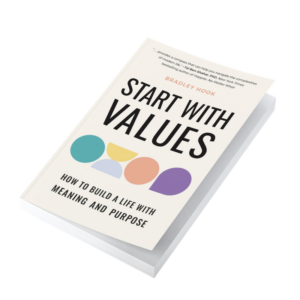Uncertainty. It’s a word I hear often in conversations, in workshops, and splashed across media headlines. We live in an age of rapid technological advancements and social polarization, both of which seem to amplify this feeling. But is the world truly more uncertain than before? And even if it is, does uncertainty have to dominate our lives?
In my experience, uncertainty has always been a constant companion. The Cold War, the AIDS epidemic, wars in the Middle East, financial crises, and the COVID-19 pandemic—these moments all carried their own existential weight. While the specific challenges change, the underlying sense of uncertainty remains. And here’s the key insight: our response to uncertainty shapes our experience of it.
The Power of Narratives
The stories we tell ourselves, individually and collectively, are powerful. When we repeatedly declare that the economy is broken, the world is spiraling out of control, or disaster is imminent, we reinforce that narrative. The media plays a role in amplifying this. Fear and sensationalism capture attention, and attention drives business.
Remember how many of us compulsively refreshed news feeds during the pandemic, tracking numbers and grim headlines? That sense of urgency and dread wasn’t always proportionate to reality, but it became our reality because we fed it.
This is where our values come in. They offer a counterbalance to uncertainty and a stable center of gravity. While we may not control the global narrative, we can control our personal one.
Struggle Gives Life Meaning
Interestingly, uncertainty and struggle are not always negative. In my workshops, I often ask participants: “What has made you proud over the past year?” The answers are revealing. People mention overcoming challenges: achieving a business goal, passing difficult exams, supporting a loved one, or improving their health.
It’s rarely the easy moments that give us a sense of fulfillment. Struggle provides meaning. The goal isn’t to eliminate all difficulty but to engage in challenges that align with our values. Choosing meaningful struggle helps us navigate uncertainty with a sense of purpose.
Values as Anchors in an Uncertain World
Values provide a framework for navigating life’s uncertainties. In the past, religion often served this purpose, offering certainty through faith in a higher plan. Today, with many people shifting toward secular or scientific worldviews, a crisis of meaning can arise. Without a clear sense of “why,” uncertainty becomes overwhelming.
But we all have core values—principles that reflect what matters most to us. Universal values like peace, love, and joy are a good start, but your personal values are uniquely yours. Identifying these values and living by them creates a foundation of certainty, even when the external world is in flux.
Creating Certainty Through Consistency
One of the best ways to manage uncertainty is by building routines around your values. Consistent habits offer stability. They are small, daily acts that reinforce what matters to you. Whether it’s morning meditation, regular exercise, or a gratitude practice, these rituals help you stay grounded.
When you keep promises to yourself, you build trust. That self-trust fosters confidence. And confidence opens the door to curiosity, creativity, and contribution. Suddenly, uncertainty becomes less daunting. You’re no longer reacting to the world; you’re responding from a place of alignment.
From Personal Values to Shared Values
Our personal values don’t just shape our lives—they influence our relationships, communities, and, ultimately, society. In a time of rapid technological change, especially with the rise of AI, co-creating shared values becomes essential. Imagine a world where core values like peace, love, and joy guide not only personal choices but also the development of technology.
By grounding ourselves in our values and extending those principles to the wider world, we can contribute to a more resilient, meaningful, and thriving society.
Thriving in Uncertain Times
Uncertainty is part of life. It always has been. But by anchoring ourselves in our values, we can face it with strength, clarity, and purpose. Values help us design a life of intention rather than default. They offer stability, meaning, and a way forward—even when the path is unclear.
In the end, uncertainty might not be something to fear, but something to embrace. It invites us back to the timeless values of peace, love, and joy—principles that can help us not just survive uncertainty, but thrive within it.


